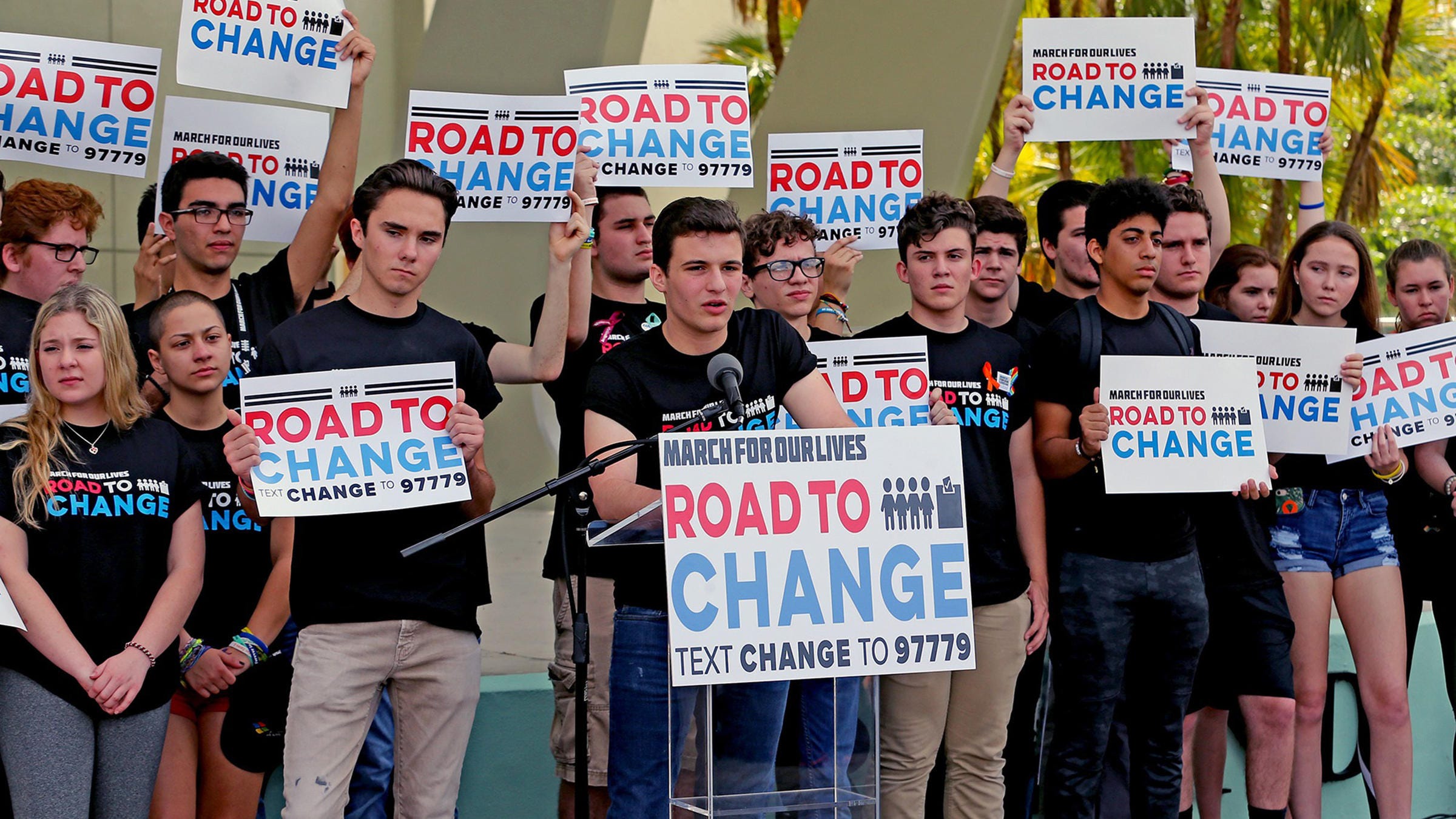by Sylvester Brown, jr.
Originally posted Dec. 2, 2019 / medium.com
The underlying premise of my book, “When We Listen: Recognizing the Potential of Urban Youth” underscores the importance of listening, learning and responding to the words, worries, hope and concerns of all young people. If we don’t do these things, young people will force us to pay attention through their passionate words, deeds and actions.
This, I believe, is the harsh lesson President Donald Trump and his army of loyal Republican minions are destined to learn very soon. Since his election in 2016, GOP leaders, evangelicals and a healthy number of adult voters have endorsed, supported or excused the outlandish, corrupt, immoral and illegal behavior of America’s 45th president. One obvious example is the juvenile and sophomoric defense of Republicans insistent on ignoring Trump’s obvious misuse of governmental power to pressure a foreign country to dig up dirt on his political opponent.
Considering Trump’s cult-like following there is little chance that he will be impeached and removed from office. After all, the man remains popular among a segment of adults who’ve anointed him God’s “chosen one.” This, despite his well-documented history of corruption, infidelity, dishonesty, incompetence and not-so-subtle racism. Maybe it boils down to the fact that maintaining political power is more paramount than principles or oft-spoken far right rhetoric of “American Values.”

Adults may be dedicated to the Trump brand-no matter what he does-but make no mistake about it; young people aren’t drinking the Kool-Aid. And, if polling and research data is correct, they are poised to overturn the proverbial political apple cart.
Last month, a national poll conducted by the Institute of Politics at the Harvard Kennedy School, found that young voters by a nearly 2-to-1 margin want Trump impeached and removed from office. The poll of voters (ages 18 to 29) found that 52 percent of all eligible youth voters and 58 percent of likely youth voters in the 2020 presidential general election believe Trump should be impeached. Add these numbers to the recent ABC-Ipsos Public Affairs poll that showed 51 percent of all Americans — not just youth — believe Trump should be impeached by the House and removed from office by the Senate, the forecast for Trump loyalists seem dire.
There are also signs of generational division among Trump’s faithful evangelical base. According to the 2019 Voter Study Group survey, only six in 10 younger white evangelical Christians (ages of 18 to 44) view Trump favorably. Although a majority (55 percent) of older white evangelicals reported having a “very favorable” opinion of Trump, only 25 percent of their younger brethren share their zeal.

ABC’s “FiveThirtyEight” reporter Daniel Cox wrote: “In conversations with a number of younger white evangelical Christians, many said they are reexamining the way their faith informs their politics and whether the two have become too tightly intertwined.”
As I wrote in my book, there is a powerful historical precedent of young people standing up, voting, speaking out and publicly challenging wrong-headed adults or majority-thinking. Those who engaged in civil disobedience during the battles for worker’s and women’s rights, racial equality and justice, the wars in Vietnam and Iraq and the “Occupy Wall Street” demonstrations were all on the right side of history.
During the impeachment hearings, Republican toadies trotted out asinine and debunked conspiracy theories to prove that Democrats are simply out to get Trump for partisan reasons; that his actions have nothing to do with his current predicament.
Young people just aren’t buying it.
In April, TIME released data from Harvard’s Institute of Politics that showed significant majorities of young voters, from both parties, “are concerned about the country’s moral direction.” Among young Democrats, 66 percent expressed this sentiment while 64 percent of young Republicans agreed. The study didn’t detail which party young voters blame for a lack of moral direction. It did, however, illustrate the shift in generational thinking.
Millennials and Gen Z’ers, the poll stressed, “have grown suspicious of the Baby Boomer generation.” Roughly four in ten younger voters said they didn’t think Boomer voters (between the ages of 55 and 73) have their best interests at heart.
Another AP/MTV poll released in March of this year revealed that only 33 percent of Americans ages 15 to 34 approve of Trump’s White House performance.
Meghan Carnes, 23, expressed her feelings with the Associated Press: “He (Trump) doesn’t seem to be really for women. He doesn’t seem to be for Black Lives Matter. He doesn’t seem to be for DACA,” Carnes said, adding, “He doesn’t seem to be for the kids worried about guns. It’s extremely disappointing to have a president who doesn’t seem to care.”
Although both parties should care that younger voters question their moral leadership, Republicans who consistently stand by a president with questionable moral values and unsavory policies stand to suffer more as young people reach voting age.
University of California, San Diego’s professor Gary Jacobson spoke to the possibilities of passionate young voter turnout. “We had turnout in 2018 that was 10 or 12 points higher than it’s been over the past several decades, the highest it’s been in 100 years.”
Republicans should also be alarmed that youth turnout more than doubled during the 2018 midterms compared to 2014. In the first congressional election since Donald Trump became president, 36 percent of voters (ages 18 to 29) voted in 2018, up from 20 percent four years prior. According to The Atlantic, more than 3.3 million of these voters casted early ballots, a 188% increase from 2014.

Ignoring the pattern of youthful voter enthusiasm may prove detrimental in the 2020 elections. John Della Volpe, director of polling at the Harvard Kennedy School Institute of Politics, spoke to this: “Young people are not just responding, but they are shaping a larger public narrative, or beginning to.”
I’m not naïve enough to believe that anything I’ve written will dissuade the president’s horde of political and religious sycophants. Let’s be real, “facts” aren’t really a persuasive argument against grownups mesmerized by the hype that is Trump.
No, my goal is to emphasize the importance of recognizing and benefiting from our young people’s potential. For those of us seeking real change in political leadership, our young people are our best and brightest hope for the return of morality, normalcy, decency, efficiency and democracy in America.
***
Sylvester Brown, Jr. is a former columnist for the St. Louis Post-Dispatch, the founder of the Sweet Potato Project, an entrepreneurial program for urban youth and the author of the newly released book “When We Listen: Recognizing the Potential of Urban Youth.”




Comments